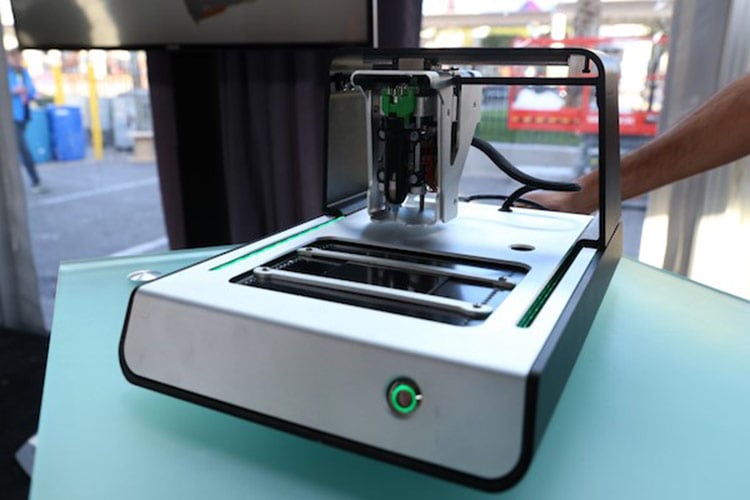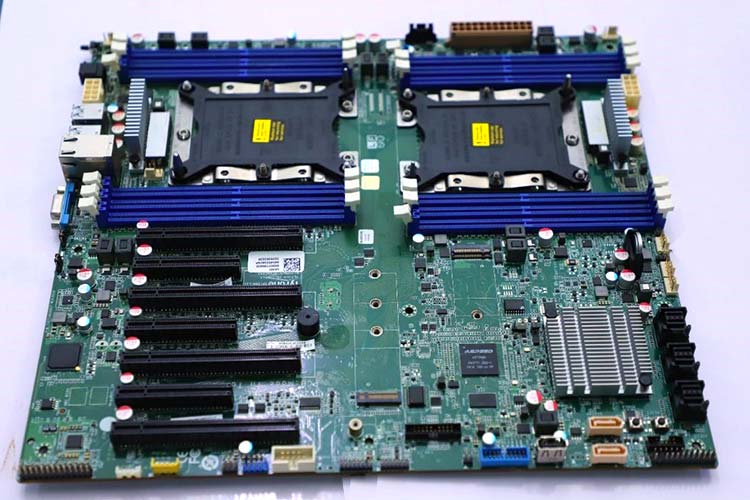
The procedure of Printed Circuit Board (PCB) manufacturing is extremely imperative for anyone associated with the electronics industry. In general, PCBs can be defined as a laminated sandwich structure that consists of both conductive and nonconductive materials that enable engineers to place components on a rigid structure and make the necessary connections between them. Now, with the heavy escalation of growth and demand for electronic items in India, the demand for a sophisticated range of PCBs are also on the rise. According to a previous report of CircuitDigest, the country has progressed massively in manufacturing in the past few years, but it still faces numerous impediments due to which most of the electronic components and PCBs are imported from outside. In this regard, we spoke to Varun Manwani, Director at Infopower Technologies about where India currently stands in PCB manufacturing, the ongoing challenges, and how the complex taxation structure creates a barrier for the industry.
Q. What is the current status of the PCB manufacturing ecosystem in India and where do you see its growth in the coming five years?
Based on the current scenario, this is probably the best time ever when you look at government policies, geopolitical situations, and the current state of the economy. So, right from mobile phones, the retail market and every market are booming. India’s recovery during the pandemic has been tremendous and has presented a lot of opportunities, the stock market is doing very well, and overall the industry is very good. When you look at all these macro factors and you bring it down to the PCB manufacturing industry is definitely going to perform very well. Another important thing is that the existing base is very low, but the growth is definitely going to be in the high double digits. There is no doubt about the fact that India as an electronics manufacturing destination is going to gain traction and companies are moving out from China and now a lot of global companies are implementing the “China Plus One” policy. If you look at it five years from now, you will definitely see this trajectory is going to be very high.
Q. The electronics industry has been growing tremendously but the export volume of PCBs is very low because the raw materials and components are still outsourced. What are your views on the export of India’s electronic equipment and PCB?
Indian companies are already exporting 45-50 percent of their production to various countries. The fact is that if the number grows in terms of domestic manufacturing, exports will automatically grow. The important factor is to bring in the ecosystem because that helps us to become more competitive, our reliance on imported supply chains will then go down. The government is definitely working on sops for the industry and working on making exports better, the policy framework is changing, the SEZ act has been abolished and the act is being implemented, and we have all seen that the rupee has performed much better than other currencies, and the GDP growth is obviously going to be 7-8 percent.

Q. Amid all the positive vibes you mentioned, what do you think are the current important challenges of the PCB manufacturing ecosystem in the country and the solutions and strategies to tackle them?
In a nutshell, I would say that the supply chain ecosystem has to be seriously looked at so that entrepreneurs and global companies can start manufacturing those commodities or raw materials within the country. The policy framework has to be very crisp and crystal clear so that companies can look for joint ventures. Whether it is Chinese, Taiwanese, or Thai companies, we should invite everybody for technology. Put measures in place so that it is not a challenge for the country on a political side. The PCB industry should be given infrastructure, and high-priority sector status because the need for the PCB industry can only be met when those things are in place. There will be tons of companies who want to come to India to manufacture PCBs if these things are taken care of like water requirements, power requirements, and common infrastructure. All these things are going to help like Gati Shakti program because it ties up the entire logistics sector.
Q. The imperative point is the lack of skilled workforce and engineers for electronics and semiconductor manufacturing in the country as per some media reports. So, how do you fill the gap?
See, there is no doubt about it when you look at the other countries, India’s demographics are probably the best. The middle class is the age you know most countries in the world when you look at Japan, Taiwan, and Europe, have tremendously aging populations. So, the pool of resources is available, but how we harness that pool is very important. I believe that the industry, academia, and the government have to act together, come together and make tailor-made programs for the aspirations of the youth so that they are willing to join the workforce not only PCB but manufacturing as a whole. Everybody tends to run to the services sector, but if the manufacturing sector is given much importance and marketed well then there is no reason why the skill set cannot be enhanced. We have always proved that India’s engineering talent is the best in the world and it can definitely do so in this space as well, but we need to give an opportunity to the youth to be able to harness and hone their skills and that will only happen when all these three bodies will act together.
Q. Can you please elucidate why Infopower Technologies was founded? Your mission and vision and the products and solutions you are offering?
Infopower Technologies is one of the group companies of the Sahasra Group, which is into electronics manufacturing services and PCB manufacturing. We are one of the first companies in India into semiconductor packaging and the facility will be opened in December this year or in January 2023. Specifically from a PCB perspective, we are investing rapidly and in fact, we are going to expand our production capacity by 3X in the next one and a half or two years. From our production unit, there is currently 66 percent of deemed and direct export. We will continue to focus on exports because it brings a lot of value, it helps us to maintain our quality, and also helps us to get access to technology via customer connection. We definitely believe in the PCB manufacturing space, it’s strategic to us internally because it is a captive plant for us. But the focus on growing PCB manufacturing is not only for captive consumption but also for supplying to others in the industries as well. We will continue to invest in this domain in the higher-end and value-added technology as well.

Q. Amid the investment opportunities, the taxation and duty structure is very complex. Do you want to highlight any changes to the government?
The taxation system is much simpler today since the onset of GST. Now, it is not as complicated as it used to be. Within the GST structures, there are different rates but it needs to be rationalized and as far as the import duty goes, PCB is one of the categories where India signed up to the ITA-1 agreement of WTO. A finished PCB comes in India as a complete product and it comes as zero duty, whereas the raw material comes in with heavy-duty, which is problematic. And if the raw material comes in with duty companies like ours who are into manufacturing we have to apply for certificates for that duty percentage to be waived off. Now, that’s a bit of a hassle, which requires a lot of paperwork, etc. and we hope that can be looked at by the government to be able to remove it, then that makes our processing and paperwork much simpler. Generally, I would say from a GST standpoint, the entire industry is probably happy with that and yes, there are other things also that the government can help with as indirect things than can do because it’s a very demanding industry in terms of power and water consumption. So, I request that the PCB industry can be given special status and therefore, accession in terms of like electricity duty and water rates can be reduced.
Q. What will be your roadmap in the coming years?
Infopower will definitely continue to invest in the PCB manufacturing space and our aim is to become among the top ten players in PCB manufacturing within the next three years in India. We are actively looking at joint ventures, mergers, and acquisitions to be able to scale up either at like-minded companies or even overseas players so that we can actually achieve the numbers we are looking at.
The full video interview of Varun Manwani:

